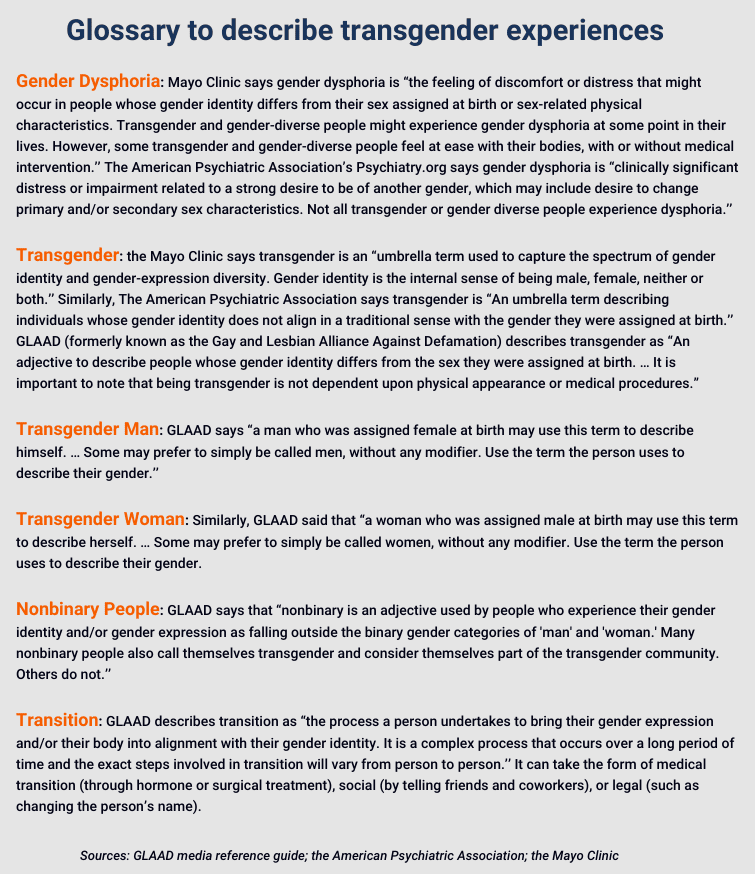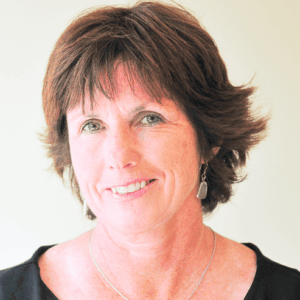Deborah McDonald cherishes the memories.
There are nearly six decades of relationships with friends, coworkers, the two children she raised and her spouse, the woman she fell in love with 32 years ago.
“You’ve got to decide what memories you keep, which ones you let go,” said McDonald. “It’s sort of a grieving for life before you transitioned.”
After wrestling with the discomfort and distress of living in a male body for 57 years, McDonald began taking hormone replacement therapy in March 2020.
Like many people who transition later in life, McDonald embraced the joy of a “rebirth” and revealing her true self, but she also faced several heartbreaking losses.
Long-term friendships dissolved. Some coworkers shunned her and her wife filed for divorce.
“She said she’ll never accept me as a woman,” said McDonald.
Along with changes in their personal relationships, older transgender people face profound and unique challenges.
They struggle to find doctors who will understand their physical and mental health needs.
They fear what will happen to them if they are put in a nursing home or an assisted living facility. Will they be verbally or physically harassed by other residents or staff? Will they be placed in a room with someone who matches their birth-assigned sex rather than their gender identity?
At a time they most need support, many aging transgender people like McDonald are estranged from lifelong partners.
“I’ve never lived alone and that’s kind of bothering me,” said McDonald, who resides in the Sanford area. “I’ve thought about what if I get sick or fall and break my hip? I could be here a day or two alone before I got hold of someone.”
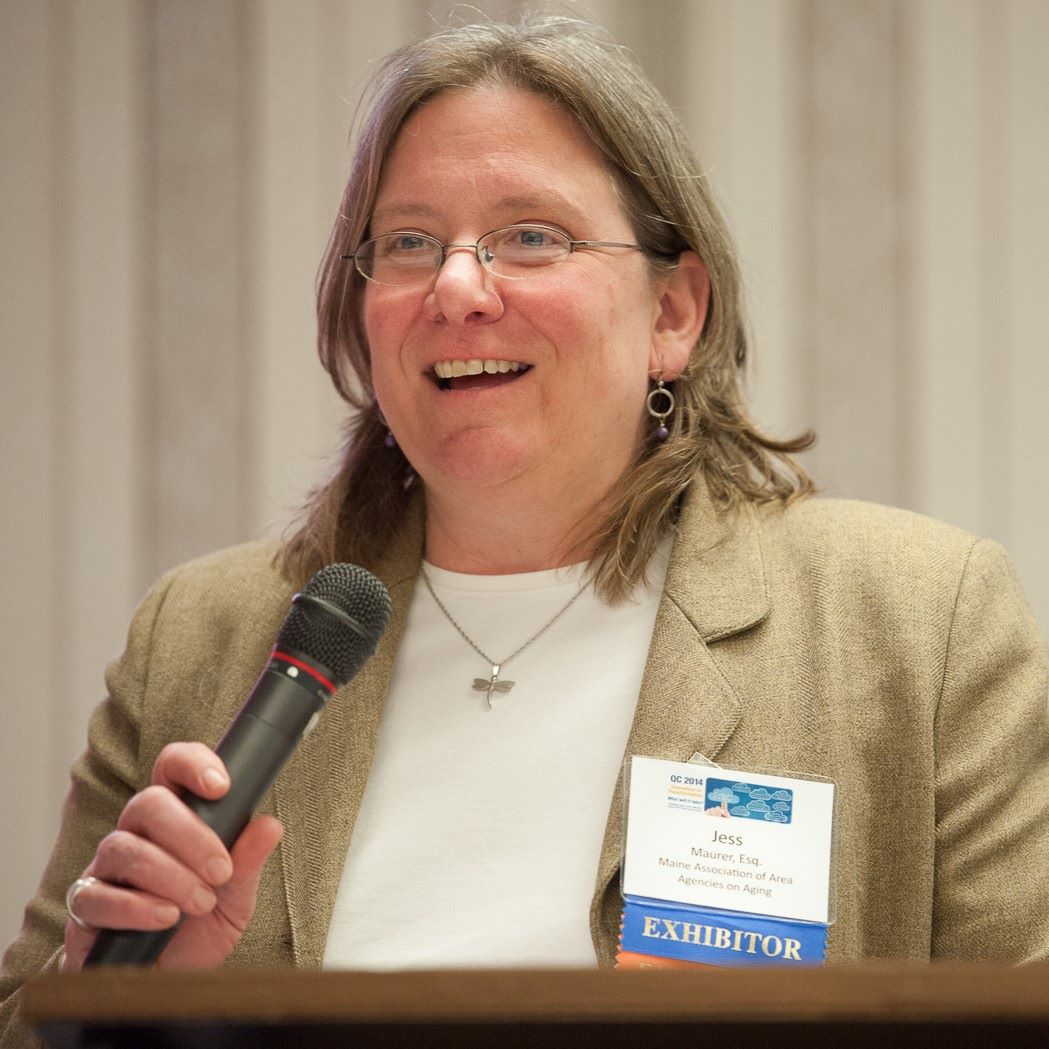
Health issues worry most older adults, but the concerns can be a lot more complex for transgender people, said Jess Maurer, director of the Maine Council on Aging.
Transgender adults have higher rates of depression and anxiety than the rest of the population due to the discrimination, stigma and violence they face.
A study recently released by the Williams Institute at UCLA estimated there are 5,900 transgender adults in Maine, including 1,000 who are 65 or older.
According to the 2015 U.S. Transgender Survey, which examined the experiences of nearly 30,000 transgender people, 40 percent attempted suicide in their lifetime, nearly nine times the rate in the U.S. population.
Nearly half of them were sexually assaulted at some point, and almost one in 10 were physically attacked in the year before the survey, which was conducted by the National Center for Transgender Equality.
“For any group who has been traditionally marginalized, it’s a terrifying idea to be going into an assisted living facility or a nursing home where you may experience trauma, violence, name-calling or harassment,” Maurer said. “And it’s a double concern because it’s not just from the other residents that you may experience this from, but you may run into hostilities with staff, too.”
Aging brings special concerns
One of the biggest fears among her older transgender friends is being placed in a long-term care facility, said Christine Caulfield, a 65-year-old Yarmouth transgender woman who co-leads an online support group for Maine Transgender Network.
If a person has “passing privilege” among the general public — meaning they are able to “pass” as their expressed gender — it can be traumatizing, Caulfield said, to be outed in a nursing home, where they may have little privacy and have to be bathed or dressed by caregivers.
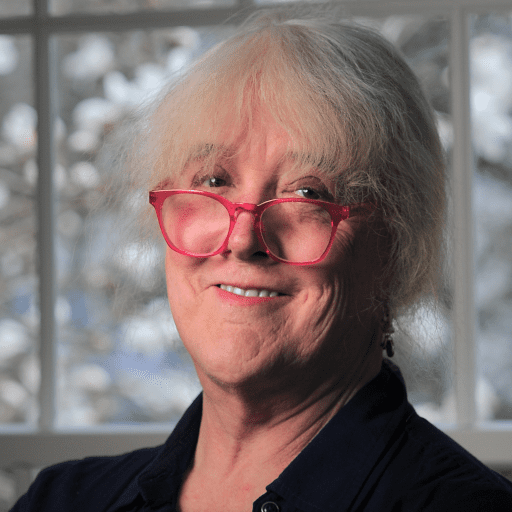
There are also concerns about being placed in a room with another resident who does not align with a trans person’s gender.
“It can be really stressful,” said Caulfield. “If you’ve passed for a long time and you go into a nursing home as a trans woman, are you going to end up in the men’s wing? It’s absolutely horrifying to think about.
“All any of us really want if we end up in a nursing home is to be on the same ward as our gender.”
Many people who transition later in life also lose their support systems, so there may be no spouses, siblings or children to fight for their rights, said Caulfield, who is also a member of Maine Transgender Network’s elder caucus that advocates for quality health care.
“As you get older, you’re an easier target,” said Caulfield. “Especially if there is no one to stand up for you.”
Read Christine’s story: A cancer survivor, former Marine and teacher lives her best life at 65
While it’s unclear how many older transgender people face discrimination in Maine, the case of 79-year-old Marie King, Caulfield said, illustrates there are problems.
King and GLBTQ Legal Advocates and Defenders, known as GLAD, filed a discrimination complaint against Sunrise Assisted Living in 2021, alleging the Jonesport facility denied King admission because she is transgender and requested a room with another female.
Last week, King and Sunrise Assisted Living reached a settlement — an important milestone, King’s lawyers say, for transgender rights. King was the first transgender person in the country to file a discrimination complaint against a long-term care facility.
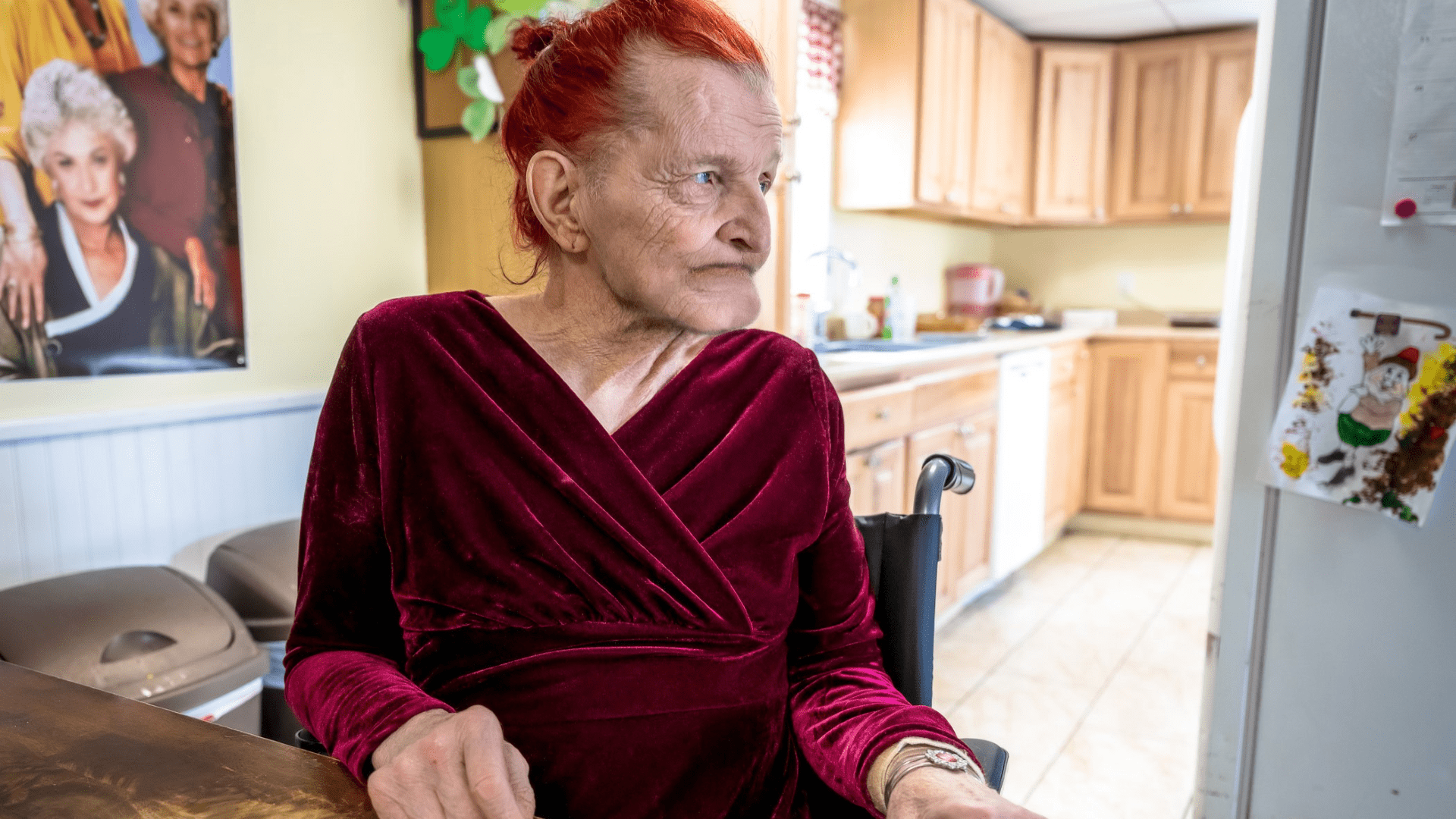
The settlement reached June 13 between the parties and the Maine Human Rights Commission makes it clear “that discriminating against an applicant because they are transgender violates the law,” said GLAD senior attorney Ben Klein. “The nondiscrimination policy and LGBT-competency training required by this settlement are models for facilities across Maine and the nation to follow.”
Adult Family Care Homes of Maine, which operates Sunrise and eight other facilities in the state, will institute a policy that provides support services to transgender people and places them in rooms based on their gender identity, not their assigned sex at birth.
“I’m thrilled to see this positive outcome,” said King in a statement through her lawyers. “I believe the new policies will keep others from experiencing mistreatment and will help people understand that transgender people are only seeking to be treated with dignity and respect like anyone else.”
Adult Family Care Homes of Maine, which declined to comment, will also train its employees and administrators in LGBT care, and prominently post a transgender nondiscrimination statement on its website.
“I just want to be treated like a human being,” King said prior to the agreement. “Being turned away because I’m transgender was wrong and it hurt. I know I’m not the only person this has happened to, and I hope my case leads to better understanding.”
Protections and problems
Transgender people are protected under the Maine Human Rights Act. The law prohibits discrimination in housing, employment and education based on a person’s color, sex, ancestry, physical or mental disabilities, or gender identity.
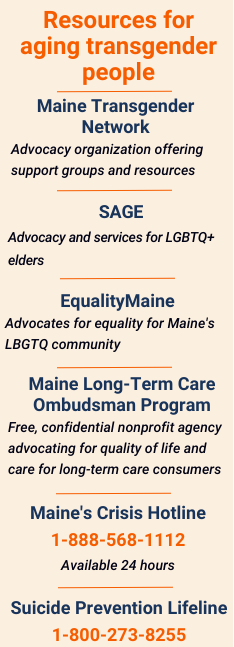
Despite the state’s anti-discrimination law, it is rare for transgender people to report an issue with an assisted living facility or a nursing home, said Brenda Gallant, executive director of Maine’s long-term care ombudsman program.
Of the 1,500 complaints her office receives each year, only a handful are from transgender people, said Gallant.
“Mostly people from the LBGTQ community have come to us for assistance with placement, finding a facility where they can be comfortable,” Gallant said. “We’ve been able to work with people to accomplish that.”
Gallant has encouraged the state’s nursing home and assisted living facilities to seek training from advocates like those at EqualityMaine.
“It’s important facilities understand the wishes and needs of a resident, and to accommodate them as much as possible,” Gallant said. “And a big part of that is educating the staff on patients’ rights.”
Gallant also urges transgender people to contact the ombudsman’s office with concerns or complaints.
“If they have any questions or problems that need to be resolved, we are absolutely there for help,” Gallant said.
Along with confronting issues in long-term care, advocates say transgender people must navigate a medical system that is ill-equipped to treat them.
Many are reluctant to seek help because of the stigma and discrimination they face, said Wilder Hart, a 55-year-old transgender male and former online support group leader for Maine Transgender Network and Maine’s National Alliance for the Mentally Ill.
“Trans individuals don’t feel safe being able to connect with health care services in general, so they just avoid it,” said Hart. “They literally have to be dying before they go.”

Many older transgender people do not receive gender-affirming surgery, which can cost up to $30,000 and can be difficult to get insurance coverage approval. Despite research that has shown gender-affirming treatment reduces high rates of depression and distress caused by gender dysphoria — a mismatch between a person’s biological sex and their gender identity — insurance companies, Hart said, are often reluctant to approve expensive surgeries.
“There’s a lot of gatekeeping that happens with health care, and insurance companies looking at surgeries as elective and not seeing them as life-saving procedures,” Hart said.
CLICK HERE TO SHARE YOUR THOUGHTS ON THIS STORY
Transitioning also varies individually, Hart said. Some people may update their legal and medical documents. Others may socially transition with clothing and hormone replacement therapy. For people who were unable or chose not to have surgery, being examined in the doctor’s office, Hart said, can be uncomfortable and traumatic. Inappropriate questions are often asked and patients are misgendered.
“Even though I can pass more easily than a transgender woman, I try to do everything I can to stay healthy as possible,” Hart said. “So I don’t have to interact with medical care.”
Many medical professionals, advocates say, are not trained in transgender patient care. Caulfield often hears complaints in her on-line support group about transphobic doctors, nurses and home care staff.
“It was a severe enough problem,” Caulfield said, “that Maine TransNet created a providers list on its website of mental and physical health providers who are not transphobic, and who are trans friendly.”
Caulfield herself was treated with hostility by a doctor who intentionally misgendered her. The demeanor of health care workers suddenly changes, she said, when they learn she is a trans woman.
“Their whole mannerisms, their speech, body language, it all changes,” she said. “It becomes defensive instead of neutral.”

The lack of training and education about transgender patients is a “huge public health issue” in Maine and across the country, said Ryan Polly, MaineHealth’s vice president of diversity, equity and inclusion.
As a 43-year-old transgender man, Polly can empathize with mistreated trans patients.
“I might have to go in for a broken arm but I’m still asked all kinds of intrusive questions,” Polly said. “There is this ignorance about trans people, and to patients it’s a microaggression because everywhere they go, they’re not understood.”
Searching for the right doctor
MaineHealth, Polly said, has partnered with the state’s transgender advocates and its own LBGTQ staff to offer training and guidance to its 22,000 employees. The education is ongoing and will soon be available online.
Traditionally, Polly said, transgender care was not taught in medical schools. “That’s a gap we’re trying to close through education and training,” he said.
Though several of her friends have talked about adverse experiences with the medical community, Deborah McDonald has not faced any uncomfortable encounters.
Newly transitioned and continuing with her hormone replacement therapy, McDonald has begun to explore further medical treatment.
In the meantime, her transgender friends helped her find a Portland doctor who understands her physical and mental health needs.
Like many aging transgender people, McDonald delayed her transition until her two children were grown and living out of the home. Several of her friends told her she was courageous to begin hormone replacement therapy at age 57, but McDonald knew she didn’t have a choice. Her gender dysphoria and distress over her male body had become debilitating.
“I wasn’t being brave or courageous,” she said. “I was just getting more and more uncomfortable and depressed (not transitioning).”
Still, the fallout of ending a 29-year marriage is painful.
“I love my wife,” McDonald said, “and I don’t really want to be alone after all these years.”
The couple shared similar tastes in movies and books, she added, and considered each other to be “kind and gentle people.”
“Five years ago,” McDonald said, “I thought we would be together forever.”

A former runner, McDonald is healthy and has not given long-term care much thought. But the idea of navigating health issues without a spouse as she ages is worrisome.
Over the past several months, McDonald sought support from new friends who comforted her and shared their own losses. Several have also gone through divorce.
“I always felt like an outsider before I transitioned,” she said. “Now I have found people I feel comfortable with. I’ve finally found my tribe, and they have been very supportive.”
RELATED: Maine woman’s best shot pays off in life and basketball
This series was financially supported by The Bingham Program and the Margaret E. Burnham Charitable Trust. We encourage you to share your thoughts on this series by visiting this page. Barbara A. Walsh can be reached at gro.r1753414135otino1753414135menia1753414135meht@1753414135arabr1753414135ab1753414135.
